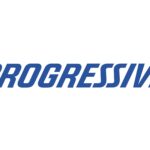Some craft distillers say they’re struggling ever since Washington voters passed Initiative 1183 reforming how people buy and sell hard liquor in the state.
Skip Rock Distillery owners Julie and Ryan Hembree in Snohomish say the state stopped buying their potato vodka even before the measure was approved in November. All the state’s small distillers were supposed to be allowed to market their liquor beginning this month, but that’s been pushed back until at least March 1 as officials figure out how to get the state out of the liquor-selling business.
“We’re in a state of limbo. I look forward to seeing more special orders come through the state’s ordering process,” Ryan Hembree said. “But the state’s initial reaction to 1183 passing was to kill all orders from newly established craft distilleries like ours.”
After calling state liquor board chairwoman Sharon Foster last week, Ryan Hembree said he believes the state continues to value craft distillers and that special orders should continue until March.
“We just need it to happen sooner than later,” he said. “We can only sell so many Skip Rock T-shirts, sweatshirts and hats.”
Before I-1183, the state ran the liquor system and bought and distributed all of the hard liquor sold throughout the state. The state will continue to run liquor stores until next summer when it has to get rid of its stock and allow private business to take over. Only retail stores that are 10,000 square feet or larger will be able to sell hard alcohol. Since the measure passed, the state Liquor Control Board and the state Department of Revenue have been working to establish new rules that mesh with the new law.
“It’s very complicated stuff,” said liquor board spokesman Brian Smith. “And the initiative did not take the craft distillery model into account.”
Just a few years ago, the Legislature allowed small distillers to make spirits and even offer tastings at their distilleries — a first since Prohibition. But distillers had to actually buy back their own booze to pour in their tasting rooms.
Starting this month, local craft distillers were allowed to serve from their own bottles at their shops without the state intervening. However, distillers now have to pay a 10 percent distributor license fee and a 17 percent retail spirits license fee on gross sales. And they have to wait until March 1 to be able to sell directly to licensed retailers.
Though the Hembrees are optimistic about the future of their business, things look a little bleak right now. A bottle of their vodka costs $33.95 in the liquor store. What the Hembrees and their business partners make on that bottle is about $3. If the state continues to impose high retail and distribution fees, the chance to make more on their product is thin.
“We are a small business. Just to handle all the paperwork from the state is costly,” Julie Hembree said. “We’ve invested in a lot of education, expensive German-made equipment and permits. We can’t walk away from it.”
The Hembrees don’t have a tasting room set up yet. For now, they are encouraging restaurant owners in Snohomish and Skip Rock fans to buy the vodka at state and contract liquor stores in the county and hang on to the hope that enough of their vodka will remain available.
The Skip Rock Distillery partners also are participating in regional food events where they can sell their vodka and are considering selling it in Oregon and British Columbia.
“We hope that companies such as Costco will consider showcasing local products in their liquor sales,” Ryan Hembree said. “We would love to talk with them.”
Reid Jensen owns RBDL distillery near Marysville. Jensen, a building contractor by trade, would like to turn his distillery hobby into a money-maker. He doesn’t have any faith that a big warehouse store would ever buy his RBDL vodka.
“I can’t compete against the big vodka companies or Costco’s Kirkland brand,” Jensen said. “For the small guy, the way the state had it set up before 1183 was really the best, even though people hardly made any money. Everybody took their products to the single distributor, the liquor stores. It was a tough go, but now I think we will see a lot of distilleries just shut down.”
Some members of the Washington Craft Distillers association have complained that state attorney general’s office is directing the legal interpretation of the initiative to favor big business distributors, making it even more difficult for craft distillers to survive.
“We are trying to keep things as equitable as possible,” Smith said. “And that means keeping craft distilleries in mind.”
The Hembrees produced their first bottle this past March and just earned a 2011 international gold medal award for Skip Rock vodka from the Beverage Tasting Institute in Chicago. Skip Rock is among just seven distilleries in the country that make potato vodka, and the only one that makes the spirit from Yukon gold potatoes grown in Skagit Valley, Ryan Hembree said.
The potatoes are ground, cooked in a pot still, fermented, refined, condensed, filtered and bottled into a special square bottle with the blue Skip Rick label, complete with a drawing of the ripples caused by a rock skipped into still water.
“We are foodies and we prefer Yukon gold to Russet potatoes. The golds are buttery and that is evident in our vodka,” Julie Hembree said. “We’ve been told there is a comfort food quality to our vodka. We would like to keep sharing this with people.”
Distilleries around the state are urging people to ask liquor store managers for a craft products and order local spirits from their bartenders, the Hembrees said.
Topics Washington
Was this article valuable?
Here are more articles you may enjoy.


 Viewpoint: Florida Insurance Market on the Mend
Viewpoint: Florida Insurance Market on the Mend  Progressive Records Five-Fold Increase in Q1 Net Income
Progressive Records Five-Fold Increase in Q1 Net Income  DeSantis Signs Bill Barring Local Worker Heat Protection Measures
DeSantis Signs Bill Barring Local Worker Heat Protection Measures  JPMorgan Client Who Lost $50 Million Fortune Faces Court Setback
JPMorgan Client Who Lost $50 Million Fortune Faces Court Setback 

